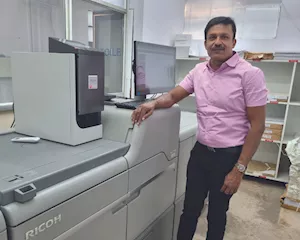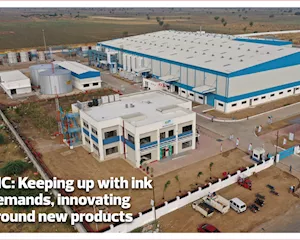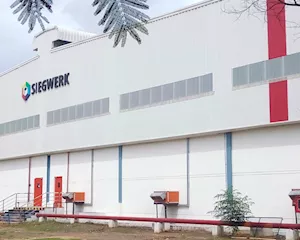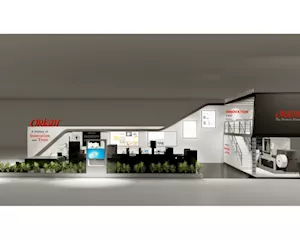KMPA switches its Monday meetings to Zoom
The Kerala Master Printers Association’s (KMPA) age-old 'Monday meeting' has taken the virtual route, but makes it even more useful to its members with the inclusion of knowledge-sharing sessions with industry stalwarts.
23 Sep 2020 | By Aultrin Vijay
The Covid-19 pandemic has of course made a dent in several businesses, including print, but KMPA is iron-willed against dropping its regular 'Monday meetings', which has been a tradition of the association so far.
With physical meetings being hit due to the pandemic, KMPA has switched its regular Monday meetings to online meeting platform Zoom to keep up with its tradition. However, it comes with an added bonus of knowledge-based sessions and seminars by industry leaders, which will be organised alongside Monday meetings, which has been conducted religiously since KMPA's inception.
The first such session – organised by Rajesh G, vice president (central), KMPA – was introduced on 21 September 2020 by KMPA. This time, Joseph Sajeev, regional sales manager-South India at Xerox India headed the knowledge-based session.
According to KMPA, the idea of holding such a session along with the regular Monday meeting was suggested by two senior members of the association – O Venugopal and G Venugopal. The idea was well received by the new president Manmohan Shenoy and secretary Haridas.
"In the midst of the ongoing Covid-19 pandemic, our association has taken the initiative to motivate its members by conducting knowledgeable sessions with eminent personalities from the printing fraternity. Nowadays, it is only possible to have virtual meetings due to mandatory social distancing. We are not quite sure when we can attend normal exhibitions or seminars like we used to earlier," Rajesh told PrintWeek.
He said that both machine manufacturers and suppliers were contacted by KMPA to identify the latest trends in print.
"By attending these sessions, we can come across the latest software developed, which can help the printers to improve quality and reduce rejections. By introducing the latest software, the printing units can reduce the workforce, which will definitely be a boon in this pandemic due to the restrictions imposed by the government," he added.
Identifying one major benefit of virtual meetings, Rajesh said, "The major noticeable difference we found is that in an exhibition there will be huge crowd, so won't be able to concentrate more on the technical details explained, but during a webinar session, sitting in the office, we will be able to note down the important points mentioned or even can record the webinar to listen to it later. These sessions are quite comfortable."
He further noted that there is not much finance involved in virtual meetings. "These virtual sessions/webinars also help us to be in touch with required people anywhere in the world, any time. We will not feel as if we are wasting time, but instead can keep on educating ourselves through these virtual sessions," Rajesh explained.
Additionally, KMPA has also scheduled its two upcoming meetings with eminent personalities from the industry. Ramakrishnan CG, chief operating officer from Technova Imaging Solution will host the knowledge session on 28 September and Chakrapani Vemula, RM sales –South India, Komori India will be the chief guest on 5 October.
How print firms are coping in Kerala
Manmohan Shenoy, the new president of KMPA shares with PrintWeek how printing units are managing the Covid crisis in God's own country - Kerala.
- There is a huge dearth of print orders and this has affected the functioning of all sections of a printing unit. Maybe some of the units catering to the pharma industry or healthcare might be getting some orders.
- Due to the scarcity of orders, the downtime of all machineries has gone up and most of the printing units are now managing with almost 50% of the workforce. If this condition prevails for some more time, resentment may grow among the workforce, which may lead to other problems.
- Revenue generation has also taken a hit, as most of the customers are citing the Covid situation as the reason for low volume of business.
- Then there are expenses, which are recurring in nature (fixed overheads and statutory payments) such as electricity bills, telephone/mobile phone bills, GST payments, property tax, payment of EMI on loans and so on. For some of these, the respective governments have issued sanctions for deferred payments. But the payments are neither waived off nor any reduction allowed in the amounts to be paid. If the governments can bear a portion of these payments and give a long repayment time (10-12 months), it will be a great relief to the print industry.
- Last month was the traditional festive season of Onam for Kerala. It was a very disappointing festive season, as there were virtually no print jobs connected to the festival. Now, the only hope for the print industry is the year end orders for diaries and calendars. It appears that this also will remain a dream, as the central government has already issued orders to various government departments and agencies to discontinue the practice of printing diaries and calendars.














 See All
See All